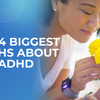7 Natural Remedies for ADHD

ADHD is one of the main problems of school-age children. Many studies of ADHD show that it influences a child’s success in education. In order to alleviate the suffering, some students ask for help from an essay writing service like EssayShark to save their time and nerves. These services can help students with ADHD greatly.
As in diagnostic matters, there is also no consensus. ADHD is a diagnosis in which a child can overcome his or her limitations only with the help of parents. Passionate arguments surround the usage of drugs to treat ADHD. In the United States, stimulants are used to relieve symptoms of ADHD, the most common of which is Ritalin (methylphenidate). Their use is sharply criticized by some experts and the public. The World Health Organization expresses concern about them, but a number of medical agencies insist on the effectiveness and safety of stimulants.
A separate article could be devoted to studies confirming the effectiveness of stimulants, as well as the opposite, showing inefficiency, harmful side effects, and the risk of addiction to cocaine in adolescents in children who have been taking stimulants for a long time.
In the USA, antipsychotic drugs (Sonapax, Neuleptil, Abilify, Seroquel) are widely used to reduce the hyperactivity and excitability of a child. Meanwhile, studies show that these drugs reduce brain tissue, not to mention have side effects such as weight gain, increased blood cholesterol, increased blood pressure, diabetes, tremors, and tardive dyskinesia.
In the UK, the right to prescribe antipsychotics is given to specialists and pediatricians. In 2011, Channel 4 News found that over the past 10 years, the number of children taking these drugs has doubled, and among them are many who are barely 5 years old. This made a strong impression on the government, which decided to allocate £32 million to expand the psychological assistance service for children and adolescents.
It is very important to conduct a medical examination of a child with ADHD. In some cases, it is possible to reduce the symptoms of hyperactivity and impaired attention. For example, this occurs when normal blood supply to the brain is restored after correcting birth injuries of the cervical spine.
The image of a child with an unnamed diagnosis of ADHD as an inattentive child in the classroom, who is unfocused in everyday life, is often used to advertise multivitamins. In fact, it is unlikely that multivitamins will produce just the best effect. However, this does not exclude the possibility that a number of specific nutrients can have a positive effect on the symptoms of ADHD.
There are studies (for example, this one) that demonstrate the lack of omega-3 fatty acids in the body of children and adolescents with ADHD, as well as the positive effects of getting the correct amounts. The best source of omega-3 fatty acids is fish oil, which is useful in many ways and has no harmful side effects, with the exception of individual intolerance.
In this French study, 40 children with ADHD symptoms took Vitamin B6 and magnesium daily for 8 weeks. Participants of the study significantly reduced hyperactivity and aggressiveness and improved attention. Children in the control group who took a placebo did not show such changes. A few weeks after the end of the course, the symptoms of ADHD in children from the experimental group resumed, which also suggests that the improvements were provided precisely by taking B6 and magnesium.
For a child and adolescent with ADHD, the nutritional structure plays an important role. Some parents are happy with the effect of a gluten-free/casein-free diet (excluding gluten protein found in wheat, rye, and a number of other cereals, and casein contained in milk), which is often recommended for children with autism who have some common symptoms of ADHD. Others praise a polysaccharide-free diet (excluding polysaccharides, i.e. sucrose and starches), such as in the SCD, GAPS, and Paleo diets.
A meta-analysis of Danish scientists suggests that elimination diets gave the best results concerning ADHD which excluded certain foods that provoke hyperactivity, impulsivity, and inattention. By the way, the same study also revealed the usefulness of fish oil for children with ADHD.
Experts advise parents to identify those products to which the child may have individual intolerance. To do this, you need to rotate the products, alternately removing them from the diet for a week or two, observing the severity of symptoms of ADHD and evaluating the result.
Children with this syndrome benefit from everything that is good for the brain. First of all, their diet should be rich in protein in the form of meat, eggs, nuts, cheese, and legumes. It is advised to give these foods to a child for breakfast, as well as a snack between lessons.
7 Natural Remedies for ADHD
- For a child with ADHD, the daily routine is very important. Compose it and make sure that the child follows it.
- Organize the space so that all the items the child needs (clothes, toys, school supplies) have a strictly defined place. This will allow the child to lose them less often.
- Avoid distractions, especially when the child is doing homework.
- Give your child a choice but reduce the number of options in order to simplify it. Offer a choice of two options for clothing, food, and toys so as not to create a sensory and emotional overload.
- When you remind your child of the need to fulfill a particular duty, try to make all explanations and instructions short and clear. Whenever possible, avoid both persuasion and the threat of punishment.
- Use visual materials to mark the goals and set the child’s success in achieving them. Find a form of reward for his or her efforts. Be sure to ensure that the tasks are realistic, and don’t exceed the capabilities of the child.
- Help your child find an area in which he or she can apply their abilities and experience a sense of success. This will increase his or her self-esteem and will contribute to the development of social skills.
In general, ADHD is a diagnosis in which a child can overcome his or her limitations only with the help of parents, even if the most highly qualified specialists are involved. Parents are required to have patience, a deep understanding of the problems and needs of the child, and a willingness to go with the child on a long and difficult path to recovery and for maximum adaptation for an independent, successful life.
*This blog post was written by John McGill with EssayShark.





